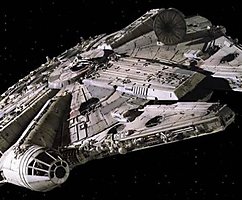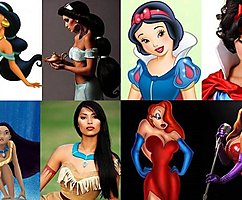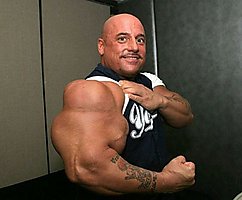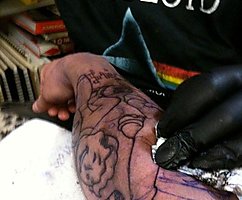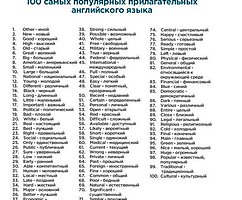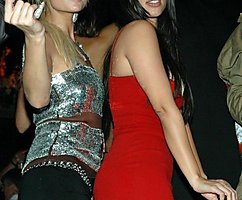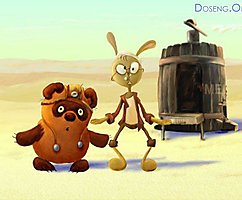Journey hero-path that passes the soul, as it develops,
 Bashny.Net
Bashny.Net
The hero bravely embarks on a journey from the world of everyday life in
region of supernatural wonder: here he meets
fabulous forces and wins a decisive victory:
hero back from this mysterious adventure
endowed with the power to bring good to their fellow tribesmen.
Joseph Campbell. "The Hero with a Thousand Faces»

Joseph Campbell, the American mythologist, who for many years studying the various legends and myths with the participation of men and women of different cultures throughout history.
Campbell said that in all of these stories, there is a certain single "deep structure", which he called "the hero's journey." This is the path which passes the soul, as it develops. The following steps are a simple version of the card Hero's Journey, proposed by Campbell.
Hero Journey: Your card
1. Call
The journey begins with the call. We enter into the world, and the world offers us the circumstances of that call or attract our unique vitality. Eckhart Tolle, who wrote the book "The Power of the" here and now ", says that the main function of the soul is to awaken. We enter into this world not to be idle. We have come to wake up and wake up again and to grow and develop.
Often, a call to action comes from the problems of the crisis, or from someone in need of help. From something lost that needs to be restored, or some power weakened in the world - and it needs to be updated, some central part of his life has been damaged - and required her healing, challenged - and you need to answer it
But, at the same time, the call can come from inspiration and joy you hear an excerpt of some great music, and wake up to the beauty of the world that ardently want to manifest in this world; you feel amazing love of education, and she invites you to express this archetypal force in society; you fall in love with their work, and that - everything that you can think of. As we shall see, the call for the journey of the hero can come from great suffering, and of great joy, sometimes simultaneously from both.
Ask yourself, "What encourages me to live?" Perhaps this vocation is not so simple, it's probably not an invitation to go for a walk in the park. Calling - this is probably the most difficult, it is beautiful, but difficult path. This path is usually destroys the status quo. Calling - it's not just the improvement of this. Calling and foresight bring the future into the present and can completely destroy the moment, denying you the possibility to operate the usual way.
A key part of the hero's journey - an acceptance of the call and the obligation to make a trip
. 2. Failure to
calling It is because the call can be challenging complex and often it is accompanied by what Campbell calls the "failure". The hero wants to avoid all the hassle that it would cause. "No thanks. Let someone else do it. it is too difficult for me. I do not have time for this. I'm not ready. »
These are typical statements that are used to refuse the call. And while some of the negative responses to the call may arise from within, some come from the outside - from family, friends, critics, or from society. You might say, "This is unreal," or "It would be selfish," or "It's not harmless," etc. Such words sometimes force you to turn away from their vocation, although, fortunately, not always.
3. Crossing the threshold
Once you answer a call and agree to be bound to take the path and go through the journey of the hero, it leads to what Campbell calls "crossing the threshold". Now you are traveling, you are in the trial. The word "threshold" has several meanings. One of them implies that lies beyond the threshold of a new frontier, a new territory, unknown, uncertain and unpredictable.
Other threshold value - that you have reached the outer limits of your comfort zone. Before you are on the threshold of a known territory, you are in your comfort zone, you know the topography of the area. As soon as you cross the threshold, you are out of range of its comfort. Therefore, everything becomes difficult, dangerous, often painful, and perhaps - even fatal. Set foot on this challenging new territory - the decisive moment of the hero's journey
. The third threshold value - that it is a point of no return: you can not go back. Once crossed the threshold, for you there is only one possibility - go ahead
. Thus, the threshold - is a moment when you are about to step into a new and difficult territory - the place where you have never before been, and where you can not go back.
And here is one very important point. This is where your ordinary intelligence you fail. Your ordinary consciousness only knows how to create different versions of what has already happened. It can not create new realities. Therefore your ordinary consciousness can not be the leading system in the journey. Only your Higher "I" is able to support you with wisdom and courage, and to plot your hero's journey.
4. Finding keepers
Campbell points out that when you're going to go on a journey of the hero, you have to find the keepers. Who are they - those who sing my song, and remind me of who I am? Who are they - those who have the knowledge and tools that I need and I do not know anything
? Who will remind me that the journey possible, and to offer me their support when I most need it? Who are they - my teachers, my mentors, my patrons? Keepers can be real people - friends, teachers, family members. They may also be historical figures or mythical creatures.
5. Facing the
face his demons and shadows Demons - is the essence of who try to hinder your journey, at times even threatening your very existence and survival of those with whom you are associated. One of the major challenges in the journey of the hero - is how to deal with "negative otherness" both within and around them
. Hero is designed to do something that will transform not only himself, but also a relatively large area in which he lives. In many ways the culmination of the journey of the hero - a confrontation with what we call a "demon" that is perceived as a hostile presence that threatens you and configured to prevent you achieve your vocation
. Campbell points out that originally the demon is perceived as something that is outside of you and tuned against you, but the hero's journey leads you to realize that the problem is not what is outside of you, and that is within you. And the demon, eventually - it's just energy, which is neither good nor bad. It's just energy phenomenon.
And that makes it something of a demon - it is our attitude towards it. This is due to what seems to be such a difficult problem. Demon is a mirror of us, he reveals our inner shadow - a reaction or feeling of our self, with whom we do not know how to be. And the essence of this stage -. The transformation and integration of the shadow
6. The development of the inner self
Thus, the hero's journey - the journey is always the transformation - especially the conversion itself. Timothy Gallwey calls this "inner game." Success in any activity - whether it's in sports, your work, close relationships, requires a certain degree of mastery of the outer game (for example, the composition of players, the environment, rules, required skills)
. Many people are quite good to learn outside the game, but you can achieve the highest level of performance only at mastering the inner game. It depends on the person's ability to cope with stress, failure, pressure, criticism, crisis, loss of confidence, etc.
One of the skills that the hero has to learn how to play the inside game. It includes a lot more than our cognitive mind. It is a function of emotional and physical intelligence and spiritual wisdom, which includes the establishment of communication with a wide field of consciousness - deep perception of the information beyond the ego and intellect. In the journey of the hero, you have to grow. You can not be a hero and refuse to grow and learn.
7. Transformation
As soon as you develop new opportunities within and find their guardians, you become ready to meet with his demons (and eventually - with their own inner shadows) and participate in the great task of the transformational journey. Campbell calls these tasks by your "tests».
This is a time of great struggle, dedication and fighting, which leads to new knowledge and new tools. This is where you create within yourself and in the world that never existed before. Etovyhod beyond what once existed to create something completely new. This process, of course, can take a long period of time.
It may take twenty years of marriage, a lifetime devoted to work, or years of research and innovation. There will be many deviations and failures will be times when it will seem that all is lost and there is no future. This predictable elements of the hero's journey. The hero - a person who can respond to this challenge and create new ways and means to cope successfully with it. Phase transformation -. It is when you have succeeded in his journey
8. Homecoming
The final stage of the hero's journey - is to return home. He has several important purposes. And one of them - to share what you have learned in my journey with others. After all, the hero's journey - is not just a private tour of the ego, is the process of transformation and the man himself, and the larger community
. So when he returns, he must find a way to share their understanding with others. characters often become teachers. But to complete the journey, the hero must not only share with others, he has to get their recognition. After all, during the journey you have already converted and not what he used to be. And we need others to pay tribute to you and respectfully accepted your journey.
However, even at this stage can occur a lot of resistance. Sometimes the hero does not want to return. He was tired, he may worry that others do not understand, or perhaps - he was magnified in his new state of higher consciousness. Or society is not waiting for his return. So sometimes to appear any other person or entity, and to call a hero back home.
So, now you know the basic structure of the journey of the hero, and you can use it as your own card. Unless, of course, you have enough for that courage and commitment.
region of supernatural wonder: here he meets
fabulous forces and wins a decisive victory:
hero back from this mysterious adventure
endowed with the power to bring good to their fellow tribesmen.
Joseph Campbell. "The Hero with a Thousand Faces»

Joseph Campbell, the American mythologist, who for many years studying the various legends and myths with the participation of men and women of different cultures throughout history.
Campbell said that in all of these stories, there is a certain single "deep structure", which he called "the hero's journey." This is the path which passes the soul, as it develops. The following steps are a simple version of the card Hero's Journey, proposed by Campbell.
Hero Journey: Your card
1. Call
The journey begins with the call. We enter into the world, and the world offers us the circumstances of that call or attract our unique vitality. Eckhart Tolle, who wrote the book "The Power of the" here and now ", says that the main function of the soul is to awaken. We enter into this world not to be idle. We have come to wake up and wake up again and to grow and develop.
Often, a call to action comes from the problems of the crisis, or from someone in need of help. From something lost that needs to be restored, or some power weakened in the world - and it needs to be updated, some central part of his life has been damaged - and required her healing, challenged - and you need to answer it
But, at the same time, the call can come from inspiration and joy you hear an excerpt of some great music, and wake up to the beauty of the world that ardently want to manifest in this world; you feel amazing love of education, and she invites you to express this archetypal force in society; you fall in love with their work, and that - everything that you can think of. As we shall see, the call for the journey of the hero can come from great suffering, and of great joy, sometimes simultaneously from both.
Ask yourself, "What encourages me to live?" Perhaps this vocation is not so simple, it's probably not an invitation to go for a walk in the park. Calling - this is probably the most difficult, it is beautiful, but difficult path. This path is usually destroys the status quo. Calling - it's not just the improvement of this. Calling and foresight bring the future into the present and can completely destroy the moment, denying you the possibility to operate the usual way.
A key part of the hero's journey - an acceptance of the call and the obligation to make a trip
. 2. Failure to
calling It is because the call can be challenging complex and often it is accompanied by what Campbell calls the "failure". The hero wants to avoid all the hassle that it would cause. "No thanks. Let someone else do it. it is too difficult for me. I do not have time for this. I'm not ready. »
These are typical statements that are used to refuse the call. And while some of the negative responses to the call may arise from within, some come from the outside - from family, friends, critics, or from society. You might say, "This is unreal," or "It would be selfish," or "It's not harmless," etc. Such words sometimes force you to turn away from their vocation, although, fortunately, not always.
3. Crossing the threshold
Once you answer a call and agree to be bound to take the path and go through the journey of the hero, it leads to what Campbell calls "crossing the threshold". Now you are traveling, you are in the trial. The word "threshold" has several meanings. One of them implies that lies beyond the threshold of a new frontier, a new territory, unknown, uncertain and unpredictable.
Other threshold value - that you have reached the outer limits of your comfort zone. Before you are on the threshold of a known territory, you are in your comfort zone, you know the topography of the area. As soon as you cross the threshold, you are out of range of its comfort. Therefore, everything becomes difficult, dangerous, often painful, and perhaps - even fatal. Set foot on this challenging new territory - the decisive moment of the hero's journey
. The third threshold value - that it is a point of no return: you can not go back. Once crossed the threshold, for you there is only one possibility - go ahead
. Thus, the threshold - is a moment when you are about to step into a new and difficult territory - the place where you have never before been, and where you can not go back.
And here is one very important point. This is where your ordinary intelligence you fail. Your ordinary consciousness only knows how to create different versions of what has already happened. It can not create new realities. Therefore your ordinary consciousness can not be the leading system in the journey. Only your Higher "I" is able to support you with wisdom and courage, and to plot your hero's journey.
4. Finding keepers
Campbell points out that when you're going to go on a journey of the hero, you have to find the keepers. Who are they - those who sing my song, and remind me of who I am? Who are they - those who have the knowledge and tools that I need and I do not know anything
? Who will remind me that the journey possible, and to offer me their support when I most need it? Who are they - my teachers, my mentors, my patrons? Keepers can be real people - friends, teachers, family members. They may also be historical figures or mythical creatures.
5. Facing the
face his demons and shadows Demons - is the essence of who try to hinder your journey, at times even threatening your very existence and survival of those with whom you are associated. One of the major challenges in the journey of the hero - is how to deal with "negative otherness" both within and around them
. Hero is designed to do something that will transform not only himself, but also a relatively large area in which he lives. In many ways the culmination of the journey of the hero - a confrontation with what we call a "demon" that is perceived as a hostile presence that threatens you and configured to prevent you achieve your vocation
. Campbell points out that originally the demon is perceived as something that is outside of you and tuned against you, but the hero's journey leads you to realize that the problem is not what is outside of you, and that is within you. And the demon, eventually - it's just energy, which is neither good nor bad. It's just energy phenomenon.
And that makes it something of a demon - it is our attitude towards it. This is due to what seems to be such a difficult problem. Demon is a mirror of us, he reveals our inner shadow - a reaction or feeling of our self, with whom we do not know how to be. And the essence of this stage -. The transformation and integration of the shadow
6. The development of the inner self
Thus, the hero's journey - the journey is always the transformation - especially the conversion itself. Timothy Gallwey calls this "inner game." Success in any activity - whether it's in sports, your work, close relationships, requires a certain degree of mastery of the outer game (for example, the composition of players, the environment, rules, required skills)
. Many people are quite good to learn outside the game, but you can achieve the highest level of performance only at mastering the inner game. It depends on the person's ability to cope with stress, failure, pressure, criticism, crisis, loss of confidence, etc.
One of the skills that the hero has to learn how to play the inside game. It includes a lot more than our cognitive mind. It is a function of emotional and physical intelligence and spiritual wisdom, which includes the establishment of communication with a wide field of consciousness - deep perception of the information beyond the ego and intellect. In the journey of the hero, you have to grow. You can not be a hero and refuse to grow and learn.
7. Transformation
As soon as you develop new opportunities within and find their guardians, you become ready to meet with his demons (and eventually - with their own inner shadows) and participate in the great task of the transformational journey. Campbell calls these tasks by your "tests».
This is a time of great struggle, dedication and fighting, which leads to new knowledge and new tools. This is where you create within yourself and in the world that never existed before. Etovyhod beyond what once existed to create something completely new. This process, of course, can take a long period of time.
It may take twenty years of marriage, a lifetime devoted to work, or years of research and innovation. There will be many deviations and failures will be times when it will seem that all is lost and there is no future. This predictable elements of the hero's journey. The hero - a person who can respond to this challenge and create new ways and means to cope successfully with it. Phase transformation -. It is when you have succeeded in his journey
8. Homecoming
The final stage of the hero's journey - is to return home. He has several important purposes. And one of them - to share what you have learned in my journey with others. After all, the hero's journey - is not just a private tour of the ego, is the process of transformation and the man himself, and the larger community
. So when he returns, he must find a way to share their understanding with others. characters often become teachers. But to complete the journey, the hero must not only share with others, he has to get their recognition. After all, during the journey you have already converted and not what he used to be. And we need others to pay tribute to you and respectfully accepted your journey.
However, even at this stage can occur a lot of resistance. Sometimes the hero does not want to return. He was tired, he may worry that others do not understand, or perhaps - he was magnified in his new state of higher consciousness. Or society is not waiting for his return. So sometimes to appear any other person or entity, and to call a hero back home.
So, now you know the basic structure of the journey of the hero, and you can use it as your own card. Unless, of course, you have enough for that courage and commitment.
Tags
Personal development
psychology
women
men
relationships
life
happiness
harmony
love
children
money
wealth
success
See also
Shower at the earth and Zvёzdorozhdёnnyh - various tasks in the world!
Vladimir Spector: "literature - the reflection of the state of the soul of society, its level of development"
Spontaneous planning for those who hate time management
7 ways to get rid of envy
Life consists of small things
10 interesting facts about the ancient Olympic Games
18 syndromes, which you did not know
Hunters wolves from Wall Street. Part 3
28 things from childhood, from which the soul becomes light. It only understands our generation!

